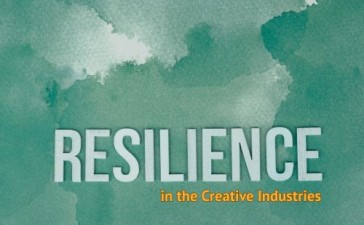Surprise, surprise, a recent survey reveals that only a fourth of people around the world like their jobs. A global poll conducted by Gallup revealed that 85 percent of employees around the world actually like the job they’re currently employed in. Not everyone wants to work at a Subway franchise or climb their way up the corporate ladder, but they have no choice.
For a vast majority of the population, any job, even one they don’t like is crucial to provide for their everyday needs. But thanks to the internet and the increasing diversity of demands for products and services, you can now actually make a living with your hobbies.
Below are 7 steps on how you can make money from your hobbies and ensure you can pay the bills while doing something you love.
- Rank Your Passions
Everyone has a handful of hobbies they enjoy, but let’s be honest, you probably enjoy some of them more than the others. Rank your hobbies based on how much you enjoy doing them. Do you prefer knitting to cook? Do you enjoy the bakery more than tuning up your car? These distinctions are important for determining which hobby you should monetize for your new job.
- Determine the Profitability
Once you’ve organized their hobby according to how much you enjoy them, it’s time to look up whether they are profitable. If you like whipping up computer programs and are skilled at programming, you could make a fortune by building a real estate mobile app or a dating app. If your hobbies are more niche, you may expect to have a tidier income.
- Weigh Your Options
You need to balance how much you enjoy a hobby and its potential earning capability. Sure, you may enjoy reading and reviewing books, but how much can such a career realistically offer? Perhaps you aren’t as passionate about baking cakes as you are about woodworking, but you should at least consider a career in the bakery if it’s more lucrative. Ultimately, you will have the choice of whether to follow your passions or profitability.
- Research, Research, Research
After you’ve chosen which hobby you’ll be monetizing, you must do your due diligence and research it thoroughly. How many competitors will you have in your area? How much money will you need to buy everything necessary? What’s the latest trend in the field? Who are the most successful people who practice your hobby? All this information can help you prepare your own business.
- Connect with People in the Field
Use the information from your research to identify rising or established professionals in your field of interest. Do they have social media accounts, and do they interact with fellow enthusiasts? Reach out to them and ash them for advice on how they got their own start in monetizing their hobbies. They may turn out to be great mentors who can help you foster your own career.
Be careful not to intrude upon their time or to outright plagiarize their efforts. Your goal in connecting with fellow hobbyists is to find a support network and get some great insights, not to bother or copy other people.
- Gather the Equipment
Whip up an equipment list based on your research and your communication with other hobbyists. What equipment and supplies will you need to get a start and begin earning? If you’re a digital artist, you will want to look up which computer programs are the best, whether you should invest in a stylus and tablet and similar considerations. If you can’t afford all the equipment outright, you can always choose to buy only what you need and save up for the rest.
- Have a Safety Net
Remember that you may not be as successful as you might like and that your attempts at monetization may end badly. You have to set up a safety net to ensure you don’t operate at a loss. Your safety net can be an ample savings account, a second hobby to monetize or a potential job offer.
Although it’s worth it to put all of your efforts into one goal, have a backup plan. Your safety net will ensure you can explore monetizing your hobbies while giving you the security you need to provide for yourself.
You may not like your current job, but know that your hobbies can provide you with the alternative career choice you’ve been looking for. Investing in yourself and exploring your hobbies can give you the satisfaction and financial security you deserve.





